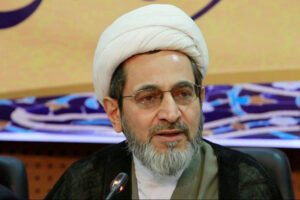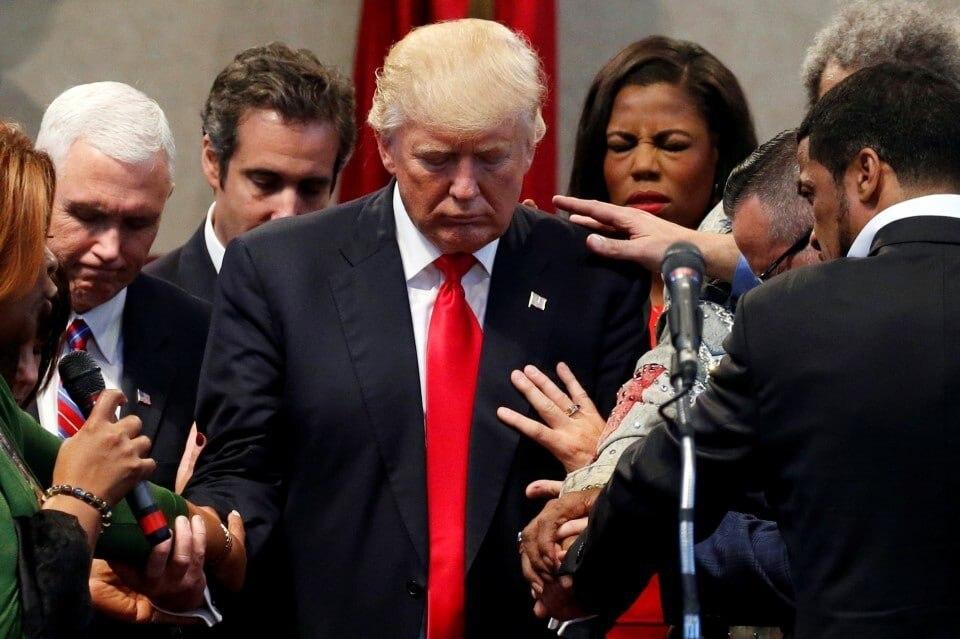Born in 1953, Masjed-Jamei is a religion scholar and researcher, with a special focus on Christianity. A former ambassador of the Islamic Republic of Iran to Vatican and Morocco, Masjed-Jamei has authored several books including “Christians and the New Era”, which deals with the geopolitics of modern Christianity in the contemporary era.
A PhD graduate in geopolitics from the University of Pisa in Italy, Masjed-Jamei has taught at the University of Religions and Denominations of Qom as well as the Iranian Foreign Ministry’s School of International Relations.

In a detailed interview with Iranian news website Khabar Online, Masjed-Jamei has weighed on the impact of evangelical Christianity on the US politics and the country’s foreign policy, especially since President Donald Trump assumed office.
An English version of the interview, originally conducted in Persian, is published by IFP News in several parts.
The first part, below, mainly focuses on the impact of evangelical Christianity on Trump’s relations with Iran:
Even under the current critical circumstances brought about by the coronavirus pandemic, the Americans are seeking to make Iran surrender. Trump says Iranians should first ask for help before Washington offers them any assistance. This comes as the embattled US president has kept his disgraceful call for negotiations on the agenda. Even some time ago, a video was released showing a US military official explaining to American politicians that the coronavirus had weakened the Iranian military. What’s your take on these developments?
Developments related to the coronavirus unfold so rapidly that we need to pay attention to the date when political and military authorities make comments. Just a month ago, neither Trump nor other US officials would have thought that the virus would come to affect and paralyze the US society as well. Since the outset, they had been telling American people that the fuss kicked up over the coronavirus outbreak was a ploy by the Democrats, and that they (the Democrats) had blown the issue out of all proportion.
Of course, I would like to somehow get away from the day-to-day news and turn instead to the root causes of the current US approach. We should examine how the US policy toward Iran and the Middle East has changed since Trump took power as US President, and what features that policy now has. In our country, an overwhelming majority of people believe that the hostile policy adopted by both Trump and the US under Trump vis-à-vis Iran is the continuation of the White House’s same old policy over the past forty years and is geared to serving the interests that the US has always had, with some differences that are the result of today’s changing circumstances.
However, the reality is something else. The policy adopted by the US under Trump, which has become more and more hostile, is practically an ideological policy. Until before Trump took office, whether during Obama’s tenure or during the terms of Bush junior, Clinton, Bush senior and presidents prior to them, the United States’ policy toward Iran had been determined based on a whole raft of material and non-material interests as well as short-term and long-term objectives. Nevertheless, after Trump assumed office, Washington’s approach fundamentally changed and took on a completely ideological dimension, an ideology a key part of which is religion.
Has the US adopted this mostly religious, ideological approach only toward Iran, or toward the whole world?
In its totality, Trump’s foreign policy is geared to turning the United States into the “Number-One Power.” On the other hand, Trump and his like-minded associates are of the conviction that the United States’ credibility was badly stained during the tenure of Obama. Even former US Ambassador to the United Nations Nikki Haley shared the same idea. He is pursuing the motto and policy of “The US is Number One,” and, accordingly, he has ideas about his foreign policy. As a case in point, the issue of the environment is not important to him at all, and he takes international agreements lightly. Another example is that he does not care much about consultations with his allies such as Japan and South Korea as well as NATO members, even key members of the military alliance such as France. Hence, he makes unilateral decisions, which draw their ire.
On the whole, Trump has adopted a “nationalistic” policy, which is also called a “bullying” policy in layman’s term. His policy vis-à-vis the whole world is the same, especially with regards to international agreements, especially climate deals. The United States didn’t use to be so, even when Republican administrations were in power.
The widely-held belief in Iran is that the United States’ policy toward our country is mostly influenced by historical records over the past four decades and is associated with issues which started with the US-orchestrated coup in 1953 against the government of [then Iranian Prime Minister Mohammad] Mosaddegh and the continuation of rule of the 2nd Pahlavi ruler.
This mentality was true before Trump took office. All previous American presidents, even a neo-conservative person and rather radical like Bush Junior, based their Iran policy on political calculations and their interests. George W. Bush and a group of his associates had really evangelical inclinations, but their evangelicalism was an individual belief and they did not take their religious beliefs into account when adopting their foreign policy. Nevertheless, Trump and his team not only incorporate this ideology into the foreign policy, but basically these very ideologies lay the foundation of their foreign policy.
Therefore, the assumption which exists in Iran does not conform to reality. The United States’ current policy vis-à-vis Iran and the Middle East region is exactly ideological, and ideology in which religion plays the key role.
You can read the second part of the interview here.
